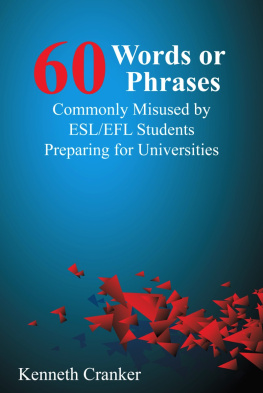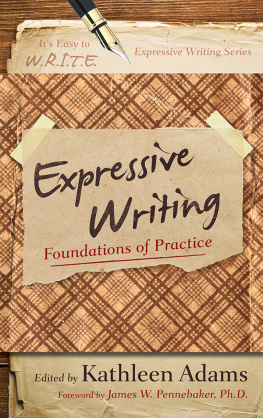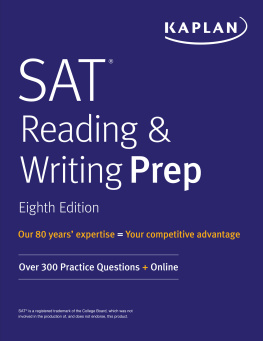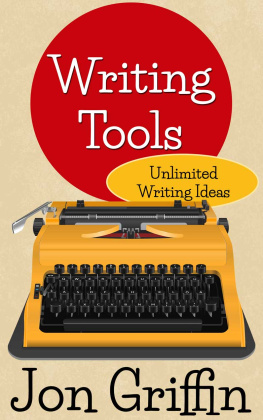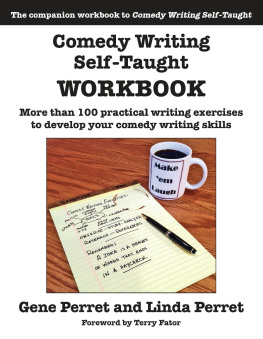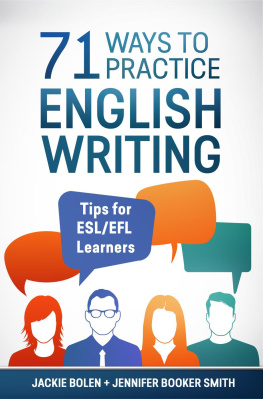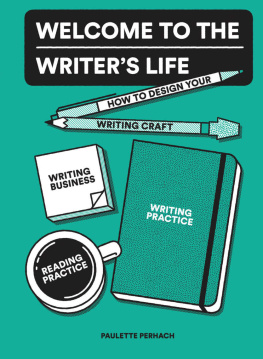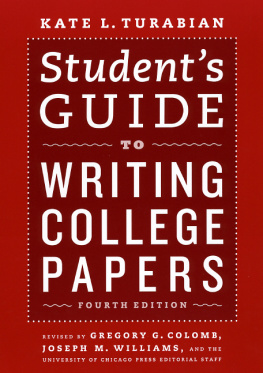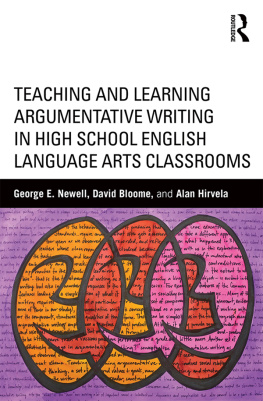Praise for Writing the Mind Alive and Proprioceptive Writing
Proprioceptive Writing is shockingly, uncannily liberating. An enthralling, surprising journey into the self.
Stephen Levine, M.D.
Professor of Psychiatry
Writing the Mind Alive is the first writing book of the new millennium, andin the tradition of Peter Elbow, Natalie Goldberg, and Anne Lamottthe next classic in the field. Metcalf and Simon's emphasis on hearing is a radically new contribution. Writers and educators, spiritual sojourners and psychotherapistsall will be inspired!
Kaitlin A. Briggs, Ed.D.
Associate Director
Honors Writing and Thesis Research
University of Southern Maine
The effect of Proprioceptive Writing on my work as an actor has been immeasurable. It has enabled me to finally find my voice and has given me a confidence I never believed possible. I am deeply indebted to the authors for this gift.
D. W Moffett
Stage, Screen, and Television actor
I never thought I had a right to sing until PW showed my soul how to find its voice again.
Linda Goldstein
Singer and Grammy AwardWinning Music Producer
If there was ever a process that could show you yourself in slow and compassionate doses, Proprioceptive Writing is it. I've relied on it for over eighteen years, and it's never let me down. This book is a true gift, the life's work of two master teachers. It puts Proprioceptive Writing in the palm of your hand.
Jane Burdick
Feldenkrais Movement Teacher
This book speaks with wisdom and lucidity. Anyone can profit from Writing the Mind Alive, a book elegant in its simplicity, persuasive in its intelligence, reassuring in its experience.
Vivian Gornick
Author of Fierce Attachments and The Situation and the Story
This book offers a unique writing approach that breaks right through writer's block, opens up inner treasures you didn't dream possible, and allows you to know yourself in an intimate, exciting way. It is beautifully executed, deeply inspiring, and psychologically on the mark.
Jill Morris, Ph.D.
Author of The Dream Workbook
Proprioceptive Writing has helped me write, think, feel, and, most important, live more fully in the world and in myself.
Susan Gutwill
Psychotherapist
The Women's Therapy Centre Institute
Coauthor of Eating Problems: A Feminist
Psychoanalytic Treatment Model
This book is the Write Stuff. The excitement, wisdom, and practical guidance I gained from Linda and Toby in their workshop helped me connect with my creativity and complete a book for publication. Now all that is available in Writing the Mind Alive, and everyone can benefit from it.
Rev. David James Randolph, Ph.D.
Professor in Residence,
Graduate Theological Union, Berkeley, CA
In Writing the Mind Alive, Metcalf and Simon set forth a method that promotes genuine clarity of thinking. It's practically like taking a bath in pen and words: wipe off enough grime, and you may be surprised how terrific you look. Proprioceptive Writing is the natural next step for fans of The Artist's Way
Drew Minter
Singer and Stage Director
Quite simply, this writing practice saved my life. At age fifty the safety of the Proprioceptive Writing form led me gently back to heal the crippling grief of a motherless childhood and guided me though the chaos of breast cancer.
Ginny Keegan
Real Estate Agent
Proprioceptive Writing is a wisdom practice of the simplest and highest kind. It is a practice of liberation. One Write at a time.
Anne Shodo Dellenbaugh
Zen Priest, Sheepscot River Refuge
Every positive change I have been able to make in my life for the past ten years I owe to Proprioceptive Writing and the teaching of Linda Trichter Metcalf and Tobin Simon.
Nina Morris-Farber, Ph.D.
New York City High School Teacher
I have been practicing Proprioceptive Writing for fifteen years and will be eternally grateful for Linda's and Toby's work. It has helped me clarify my thinking and freed me to make important choices, in business and in my personal life.
Mac McCabe
Entrepreneur and Management Consultant
When I attended my first Proprioceptive Writing workshop, clutching my secret and terrifying desire to write, I could never have imagined what a gift Proprioceptive Writing would be for me. I've since published poetry and nonfiction, and I'm working on my second novel.
Annie Jacobsen
Pychotherapist, Teacher, and Writer
In this exceptionally clear, cogent, and compelling book, Metcalf and Simon have made the remarkable practice of Proprioceptive Writing fully accessible to a wide public. While they make use of many of the techniques of psychotherapy, they have made a revolutionary advance by means of the Write, which provides a whole new dimension to the kind of reflection that goes on in talk therapy. Since reading the book, I have started doing the practice and have noted a definite jump in my reflective capacity and my general state of well-being.
Howard Kamler, Ph.D., Psy.D.
Professor, Writer, and Research Psychoanalyst
Foreword copyright 2002 by Christiane Northrup, M.D.
All rights reserved.
p. cm.
Includes bibliographical references (p.).
1. English languageRhetoric. 2. Report writing.
I. Simon, Tobin, 1941 II. Title.
Foreword
The essence of health is trusting yourself, your thoughts, and your feelings. Self-trust is the ability to know the truth about what you think and feel in your very bonesand then to use this information to guide your life.
But genuine self-trust is relatively uncommon in our culture. Instead, we are encouraged almost from birth to place our faith in the advice of authorities outside ourselvesschools, teachers, parents, and religious leaders, none of whom can possibly know our innermost thoughts and desires, the whisperings of our souls that are meant to inspire and guide us.
Without a way to check in with our deepest selves regularly, we gradually forget who and what we really are. We begin to develop an artificial persona whose actions and responses to life are driven by our desire to please others and meet their expectations.
I was thirty-two, pregnant with my second child, and pretty much living out of my efficient, medical-professional, steadfast, good-girl persona when I first met Linda and Toby at a Proprio-ceptive Writing workshop in Rockport, Maine. After having received an unsolicited brochure about Proprioceptive Writing in the mail, I had called Linda and asked her if this work could help me write about medical subjects more easily. She replied that whether one is a physicist writing a textbook or a novelist writing a story, the task is still the same: to find your writer's voice and express the essence of who you are and what you think in your writing.
This idea excited and energized me. It pointed to the possibility of wholenessthat somehow all of who I was and all of what I thought could be useful in my writing, even if I were addressing subjects like diabetes in pregnancy or the calcium requirements for breast-feeding mothers.


